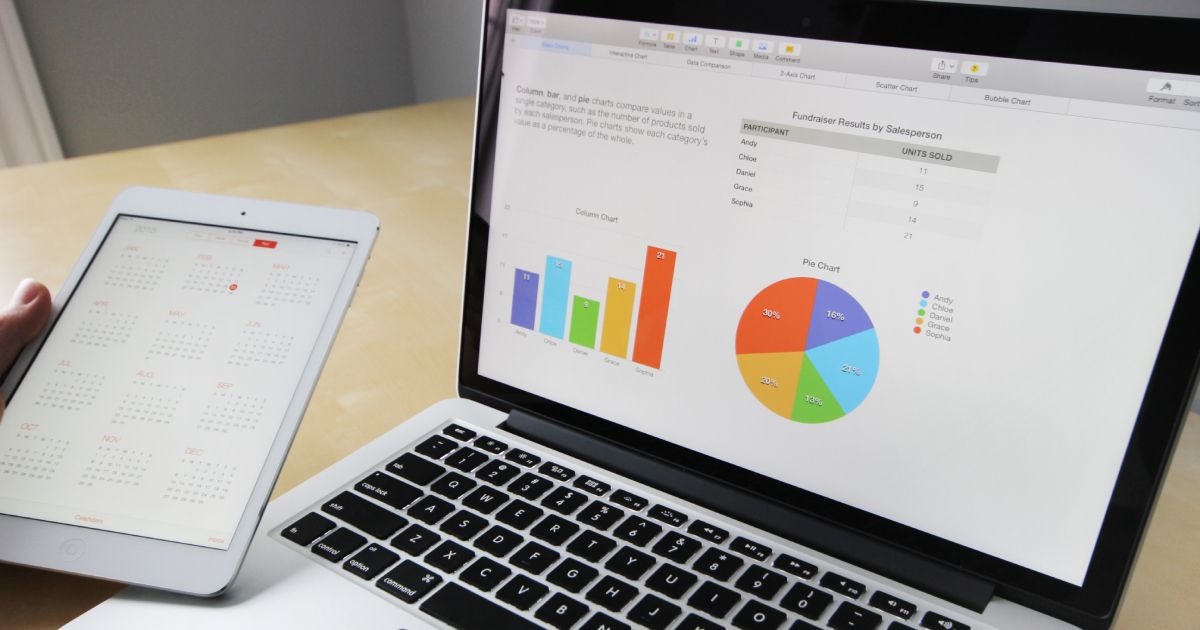5 Benefits of Cloud Accounting for Business Growth

Cloud-based accounting systems have revolutionized the way businesses manage their financial operations. With the ability to access real-time financial data, streamline processes, and enhance collaboration, these systems have become essential tools for driving business growth.
In this article, we will explore the key role that cloud-based accounting systems play in empowering businesses to achieve their growth objectives.
1) Improved Accessibility and Flexibility

One of the significant advantages of cloud-based accounting systems is the ability to access financial information anytime, anywhere. With cloud technology like QuickBooks and Xero, businesses can securely store their financial data in remote servers and access it through internet-connected devices. This eliminates the need for businesses to rely on physical servers or be limited to accessing financial information from a specific location. Whether it's from the office, at home, or while traveling, authorized users can conveniently log in to the cloud-based accounting system and access real-time financial data, reports, and statements.
Cloud-based accounting systems offer flexibility and convenience, allowing businesses to stay connected to their financial information at all times. This accessibility facilitates better decision-making, as key stakeholders can access up-to-date financial data and insights when needed. Whether it's for monitoring cash flow, analyzing financial performance, or making strategic financial decisions, cloud-based accounting systems provide the necessary visibility and convenience to access financial information on-demand.
Furthermore, the ability to access financial information remotely and in real-time enables businesses to collaborate more effectively. Multiple team members, including accountants, bookkeepers, and business owners, can simultaneously access and work on financial data, ensuring accuracy and efficiency. This collaborative approach streamlines financial processes, enhances communication, and reduces the need for manual data transfers or physical meetings. By leveraging cloud-based accounting systems, businesses can achieve seamless collaboration and optimize their financial management processes.
2) Enhanced Efficiency and Automation

Cloud-based accounting systems automate many manual accounting tasks, saving businesses valuable time and resources. Traditional accounting processes, such as data entry, reconciliations, and generating financial reports, often involve manual effort and are prone to human errors. However, with cloud-based accounting systems, these tasks can be automated, allowing businesses to streamline their accounting processes and focus on more strategic activities.
Automated data entry is a significant benefit of cloud-based accounting systems. By integrating with other business systems, such as point-of-sale (POS) or inventory management systems, financial data can be automatically captured and recorded in real-time. This eliminates the need for manual data entry, reduces the risk of errors, and ensures accurate and up-to-date financial records. Additionally, cloud-based accounting systems can automate bank reconciliations by connecting directly to bank accounts, automatically matching transactions, and flagging discrepancies. This automation saves considerable time and effort for businesses, enabling them to have accurate financial data without the need for manual reconciliation.
Furthermore, cloud-based accounting systems offer the advantage of generating financial reports and statements with a few clicks. These systems have built-in reporting functionalities that can automatically compile financial data and generate comprehensive reports, such as balance sheets, income statements, and cash flow statements. This automation eliminates the need for manual data extraction and report preparation, saving businesses significant time and effort.
Additionally, cloud-based accounting systems often offer customizable reporting options, allowing businesses to tailor reports to their specific needs and preferences. This enables businesses to gain valuable insights into their financial performance and make informed decisions based on real-time data.
3) Real-Time Financial Insights

Cloud-based accounting systems provide real-time visibility into a company's financial health. Unlike traditional accounting methods that rely on manual data entry and periodic updates, cloud-based systems offer up-to-date information at any given moment. This real-time visibility enables businesses to monitor their financial performance, cash flow, and key financial metrics in a timely manner. With access to real-time financial data, businesses can make informed decisions and take proactive measures to address any financial challenges or opportunities that arise.
Moreover, cloud-based accounting systems offer comprehensive and customizable reporting capabilities. Businesses can generate a wide range of financial reports, such as balance sheets, income statements, cash flow statements, and financial ratios, with just a few clicks. These reports provide a holistic view of a company's financial status and performance, allowing stakeholders to analyze trends, identify areas for improvement, and make data-driven decisions. Whether it's tracking revenue growth, monitoring expenses, or assessing profitability, cloud-based accounting systems provide the necessary tools to gain a clear understanding of the financial health of a company.
In addition, real-time visibility in cloud-based accounting systems facilitates collaboration and communication among different stakeholders. Authorized users can securely access financial data and reports from different locations and devices, fostering seamless collaboration between accountants, bookkeepers, business owners, and other relevant parties. This real-time access ensures that everyone is working with the same accurate and up-to-date financial information, improving transparency and facilitating more effective communication. Ultimately, real-time visibility empowers businesses to stay agile, make informed decisions, and drive financial success.
4) Scalability and Cost Efficiency

Cloud-based accounting systems offer scalability that can align with business growth. As a business expands, the system can accommodate increased data volume, user accounts, and transaction volumes without the need for significant hardware investments. Unlike traditional accounting systems that may require additional servers or infrastructure to handle growing demands, cloud-based solutions can scale seamlessly by leveraging the computing power and storage capacity of the cloud provider. This scalability ensures that businesses can continue to manage their financial data effectively as they grow, without experiencing performance bottlenecks or limitations.
The scalability of cloud-based accounting systems also extends to user access and collaboration. As more employees or stakeholders need access to the system, cloud-based solutions can easily accommodate user account creation and management. Whether it's adding new team members, granting access to external accountants or auditors, or providing restricted access to specific modules or data, the system can scale effortlessly to meet these evolving needs. This flexibility and scalability enable businesses to adapt to changing organizational structures, remote work arrangements, or business partnerships, ensuring that the accounting system remains aligned with the evolving needs of the business.
Furthermore, cloud-based accounting systems offer the ability to handle increased transaction volumes. As businesses grow and process more transactions, the system can handle the increased workload without sacrificing performance or response time. The cloud infrastructure allows for seamless scalability, ensuring that businesses can efficiently process a higher number of invoices, sales orders, or financial transactions without experiencing delays or system slowdowns. This scalability feature is particularly valuable for businesses experiencing seasonal peaks or rapid growth, as it provides the necessary agility to handle fluctuating transaction volumes without disruption.
5) Enhanced Data Security

Data security is a critical concern for businesses, especially when it comes to financial information. Cloud-based accounting systems prioritize data security with advanced encryption protocols, secure data centers, and regular backups. These systems employ robust encryption methods to protect sensitive financial data, both during transit and while at rest in the cloud. Encryption ensures that even if data is intercepted or compromised, it remains unintelligible to unauthorized parties. Additionally, cloud providers employ strict access controls and authentication mechanisms to ensure that only authorized individuals can access the data.
Cloud-based accounting systems also leverage secure data centers that adhere to industry-leading security standards. These data centers are equipped with physical security measures, such as surveillance cameras, access controls, and environmental controls, to protect the servers and infrastructure housing the financial data. Regular backups are performed to safeguard against data loss or system failures. This means that in the event of an unforeseen circumstance, such as a hardware failure or a natural disaster, businesses can rely on the backups to restore their financial data and resume normal operations without significant disruptions.
Moreover, cloud-based accounting systems offer enhanced protection against data loss. Traditional accounting systems that rely on local servers or physical storage media are susceptible to data loss due to hardware failures, theft, or damage. In contrast, cloud-based solutions offer redundant storage and backup mechanisms. Multiple copies of data are distributed across different servers and locations, ensuring that even if one server or location fails, the data remains accessible and intact. This redundancy provides an additional layer of protection and ensures the integrity and availability of financial data for businesses.
Final Thoughts
In today's fast-paced business landscape, cloud-based accounting systems have become indispensable tools for driving business growth.
The accessibility, efficiency, real-time insights, scalability, cost efficiency, and enhanced security offered by these systems empower businesses to streamline their financial operations, make informed decisions, and allocate resources strategically.
By leveraging cloud-based accounting systems, businesses can position themselves for sustainable growth, competitive advantage, and long-term success.





